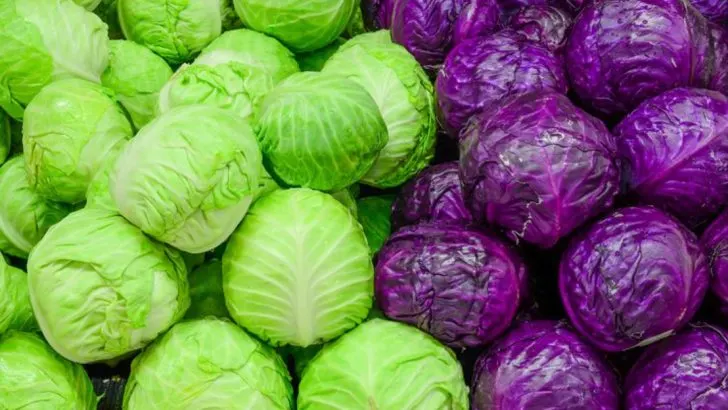Not all plants are beneficial when it comes to keeping your garden pest-free. In fact, some species are notorious for attracting insects and other pests that can wreak havoc on your crops and flowers. While certain plants invite helpful pollinators, others can serve as a breeding ground for destructive bugs. If you want to keep your garden healthy and thriving, watch out for these 19 plants that are known to attract the worst pests.
Tomatoes

Known for their delicious fruit, these popular plants often fall victim to aphids. Small green insects cluster on stems and leaves, sucking sap and weakening the plant. Their presence can lead to sooty mold, a black fungus, further damaging the plant’s health. Regular checks are essential to catch these pests early. Using insecticidal soap or introducing ladybugs can help control aphid populations effectively. Avoid over-fertilizing, which can attract more aphids. Companion planting with basil or marigold may deter these tiny invaders. Picking off heavily infested leaves can prevent further spread, helping your tomatoes thrive.
Cabbage
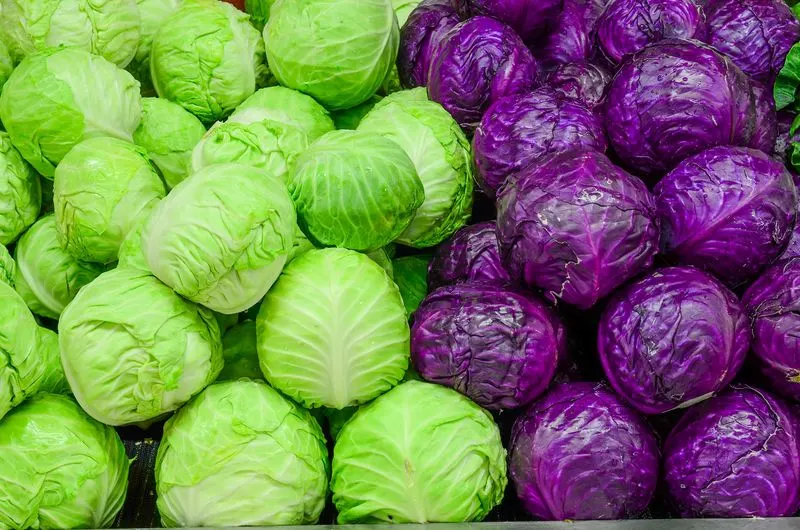
Cabbage is a magnet for cabbage worms, often leading to leaves riddled with holes. These green caterpillars can quickly defoliate a plant, hindering its growth. Handpicking worms is effective for small infestations. Netting can protect young plants, while neem oil acts as a natural deterrent. Encourage birds to visit your garden; they are natural predators. Rotate crops yearly to prevent these pests from becoming regular visitors in your garden. Plant nasturtiums nearby to act as a trap crop, drawing worms away from your cabbage.
Roses

Roses, though beautiful, often attract aphids and spider mites. These pests can cause yellowing leaves and stunted growth. Regularly inspect the underside of leaves for tiny, moving dots—signs of spider mites. Pruning infected areas and maintaining good air circulation can prevent infestations. A strong water spray is a quick fix for minor aphid problems. Introducing beneficial insects like ladybugs can naturally reduce pest populations. Choose resistant rose varieties to minimize problems. Roses also require vigilant care to ward off fungal diseases such as black spot.
Zucchini
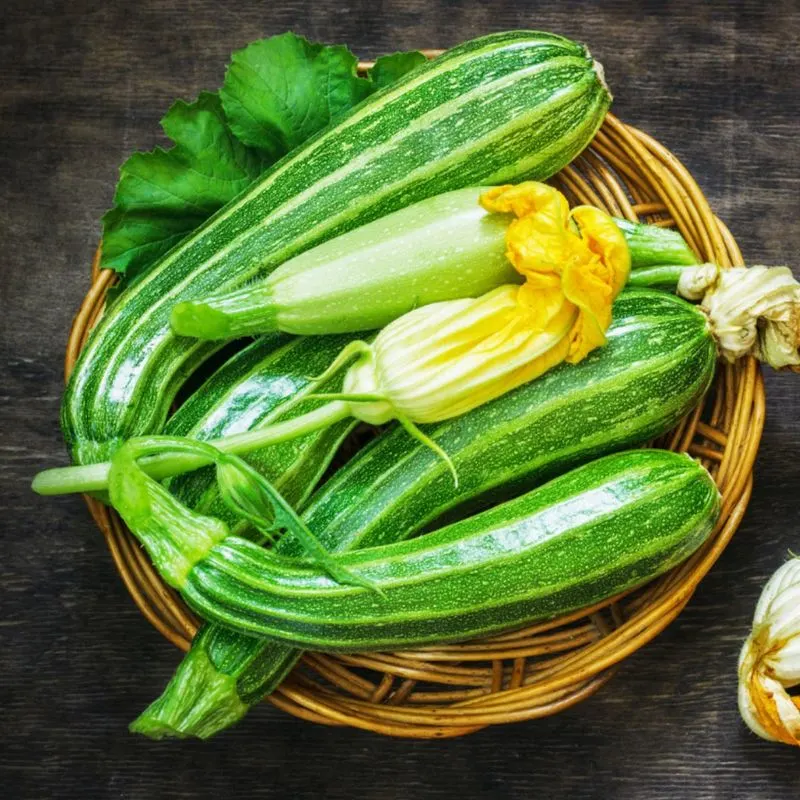
Zucchini plants are often plagued by squash bugs, sneaky pests that suck sap and cause wilting. These flat insects are best handpicked early in the morning. Diatomaceous earth can deter them by damaging their exoskeleton. Companion planting with nasturtiums can help keep these bugs at bay. Encourage natural predators like birds to visit your garden. Ensure plant debris is cleared to discourage overwintering of pests. Row covers can protect young plants. Additionally, monitor for powdery mildew, a common fungal issue that can weaken zucchini plants.
Corn
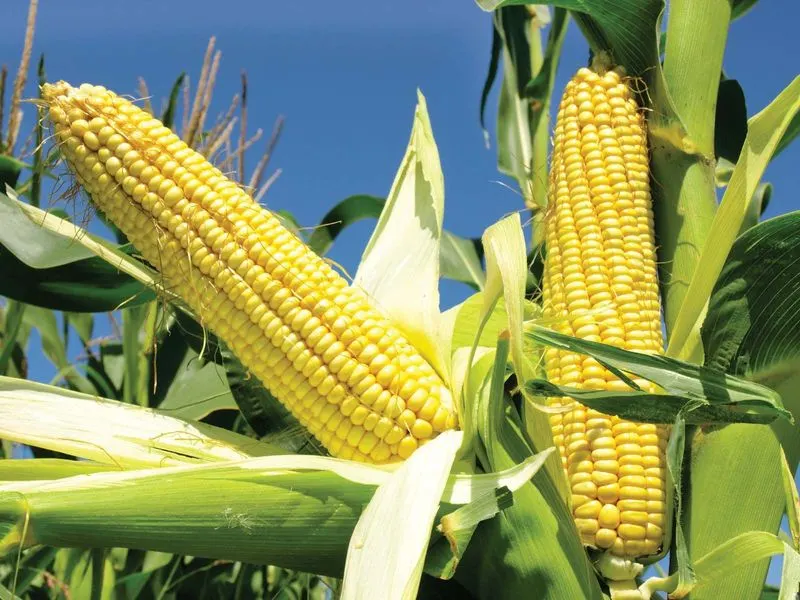
Corn is a favorite for corn earworms, which chew through kernels, leaving unsightly damage. Regularly inspect ears for early signs of these pests. Applying vegetable oil to the ear tips can deter them. Encourage beneficial insects, like parasitic wasps, which naturally control earworm populations. Crop rotation and proper spacing help minimize infestations. Consider planting early maturing corn varieties to avoid peak earworm seasons. Remove affected ears to prevent further spread. Maintaining healthy plants through proper fertilization and watering can reduce vulnerability to pest attacks.
Cucumbers
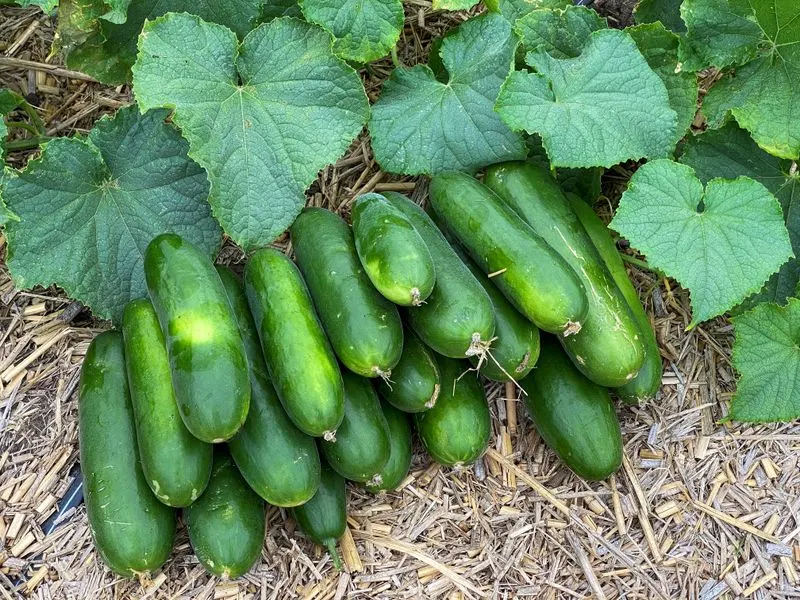
Cucumbers attract cucumber beetles, which can transmit bacterial wilt disease. These pests chew on leaves and stems, leading to yellowing and wilting. Floating row covers can protect young plants from beetles. Handpicking is effective for small infestations. Use yellow sticky traps to catch adult beetles. Maintaining healthy soil can strengthen plants against pest attacks. Introducing beneficial nematodes into the soil can reduce beetle larvae. Companion planting with radishes may deter beetles. Remove plant debris regularly to prevent overwintering beetles.
Squash
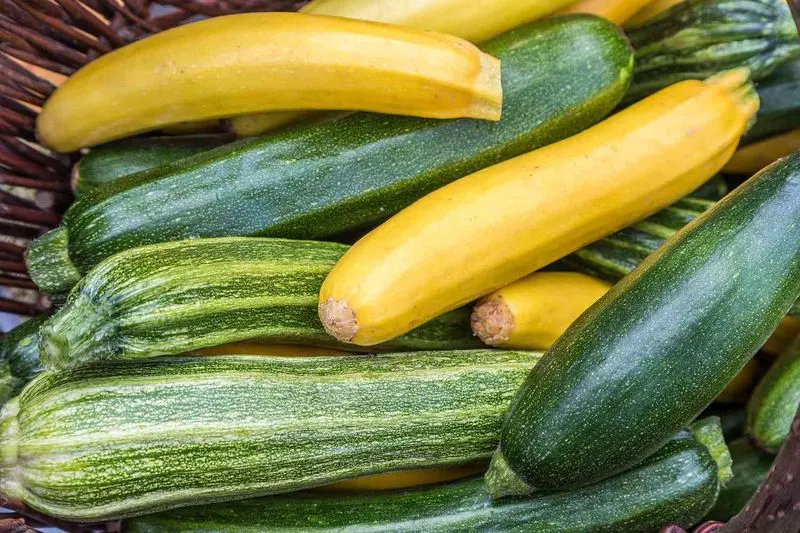
Squash plants often struggle with squash vine borers, which tunnel into stems, causing wilting. Monitor for small holes and sawdust-like frass on stems. Remove and destroy infested vines promptly. Covering the base of the plant with mulch can prevent borers from laying eggs. Row covers are effective for young plants. Attracting beneficial insects, such as tachinid flies, can help control borer populations. Planting squash later in the season can avoid peak borer activity. Rotate crops and clear debris to reduce future infestations.
Peppers

Peppers frequently face aphid invasions, leaving sticky honeydew on leaves. This attracts ants and can lead to sooty mold. Regularly check the undersides of leaves for aphids. Introducing lacewings or ladybugs can naturally control aphid populations. A strong water spray can dislodge them effectively. Avoid over-fertilizing as it can encourage aphid reproduction. Planting garlic or chives nearby may repel these pests. Pruning and maintaining healthy plants can help them withstand minor infestations. Neem oil is a natural option for severe cases.
Eggplants
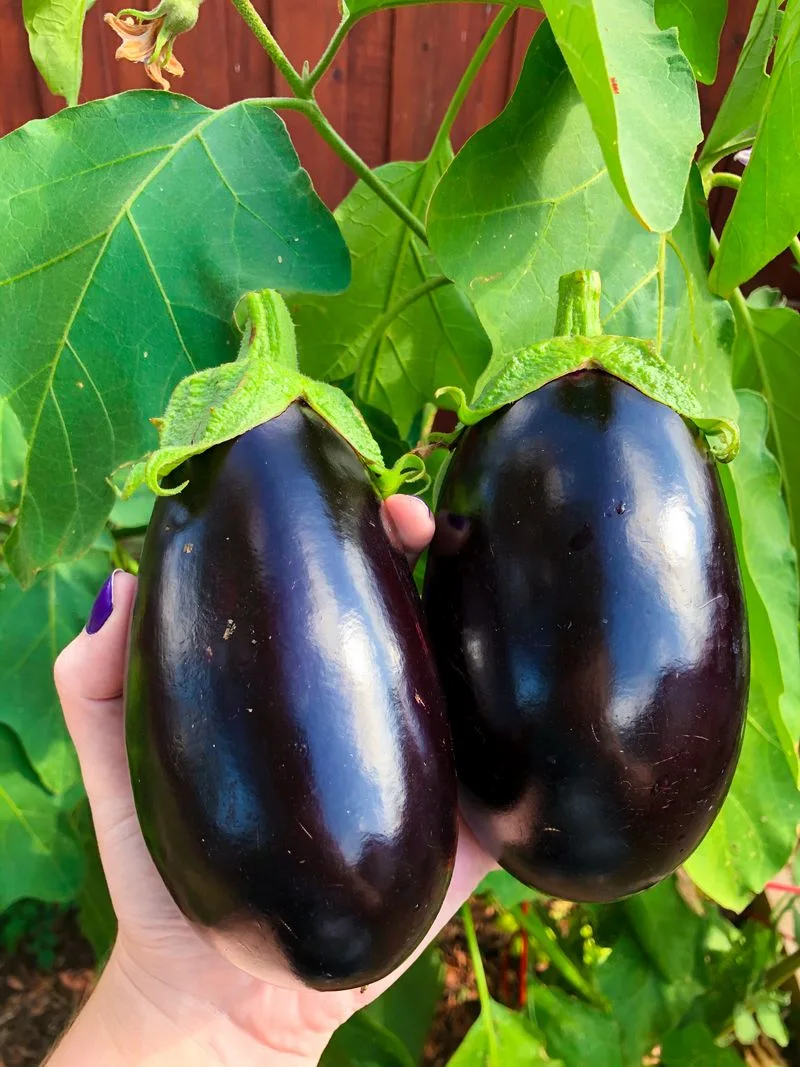
Eggplants are often targeted by flea beetles, leading to tiny holes in leaves. These pests can stunt growth if not controlled. Floating row covers offer protection during early growth stages. Diatomaceous earth sprinkled around plants can deter beetles. Encourage beneficial insects like ladybugs to help manage populations. Healthy soil and proper watering can enhance plant resilience. Companion planting with marigolds may repel flea beetles. Regularly check plants for damage and take prompt action to prevent spread. Removing plant debris reduces overwintering sites.
Green Beans
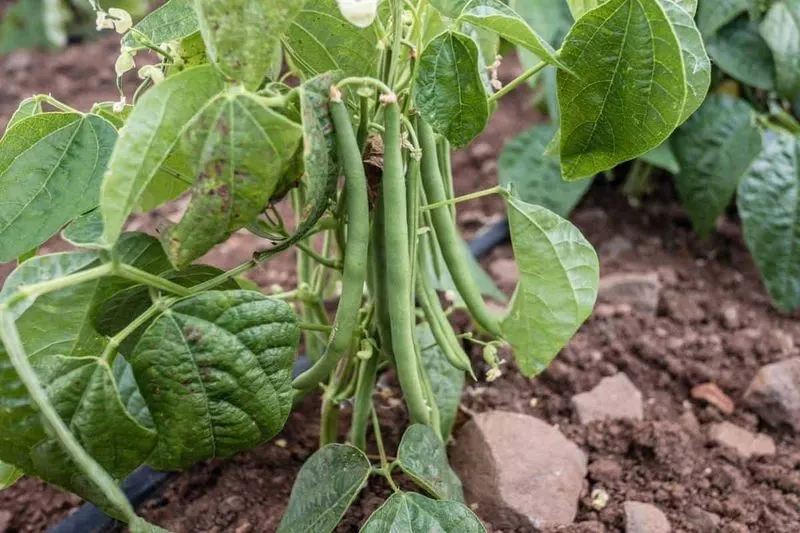
Green beans attract Mexican bean beetles, which skeletonize leaves. Effective control includes handpicking and using neem oil. Floating row covers can protect young plants. Introduce natural predators like ladybugs or parasitic wasps to manage beetle populations. Crop rotation can prevent beetles from becoming a recurring problem. Keep garden beds clean to eliminate hiding spots. Companion planting with rosemary or marigolds can deter beetles. Regularly inspect for beetles and take action before populations grow too large. Healthy, well-tended plants are less susceptible to damage.
Strawberries

Strawberry plants are a favorite for slugs, which leave holes in fruit and slime trails on leaves. Handpicking at night and using beer traps can reduce slug numbers. Copper barriers around plants deter slugs due to their reaction to metal. Keep the ground clean and free of debris to minimize hiding spots. Diatomaceous earth sprinkled around the plants can also be effective. Encouraging natural predators like birds can help control slug populations. Avoid overwatering, as damp conditions attract more slugs. Consider using straw mulch to keep fruit off the ground.
Broccoli
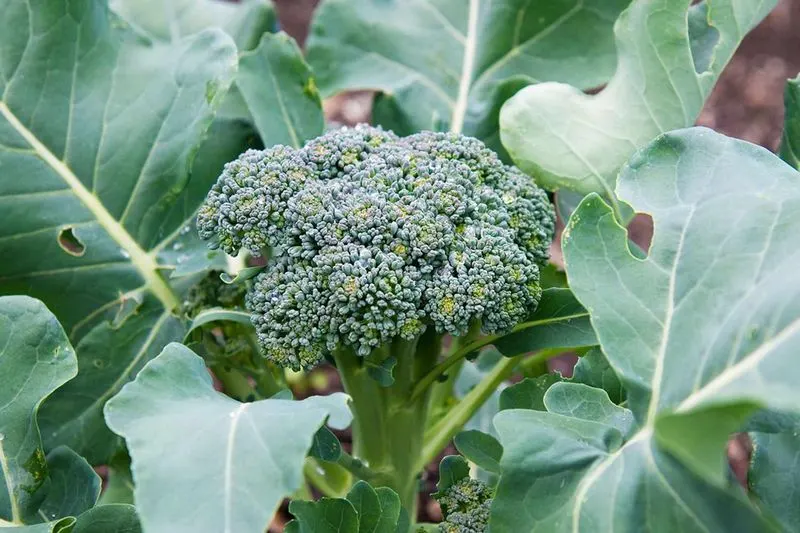
Broccoli is frequently attacked by cabbage loopers, which chew leaves, reducing plant vigor. Handpicking and introducing beneficial insects can control populations. Bacillus thuringiensis (Bt) is an organic option for severe infestations. Floating row covers can protect plants from egg-laying adults. Maintaining garden cleanliness helps reduce hiding spots. Regular inspections can catch loopers early, preventing extensive damage. Companion planting with dill or cilantro may deter them. Healthy soil and proper fertilization strengthen plants against pest attacks. Rotate crops to prevent recurring infestations.
Carrots

Carrots often attract carrot rust flies, causing distorted roots. Floating row covers can prevent flies from laying eggs. Delay planting until later in the season to avoid peak fly activity. Removing and destroying affected plants promptly can limit spread. Encourage natural predators like birds to visit your garden. Companion planting with onions or chives may deter these pests. Maintain healthy soil to strengthen plants against attacks. Regularly check for signs of damage and take action quickly. Rotate crops to prevent rust fly buildup in the soil.

